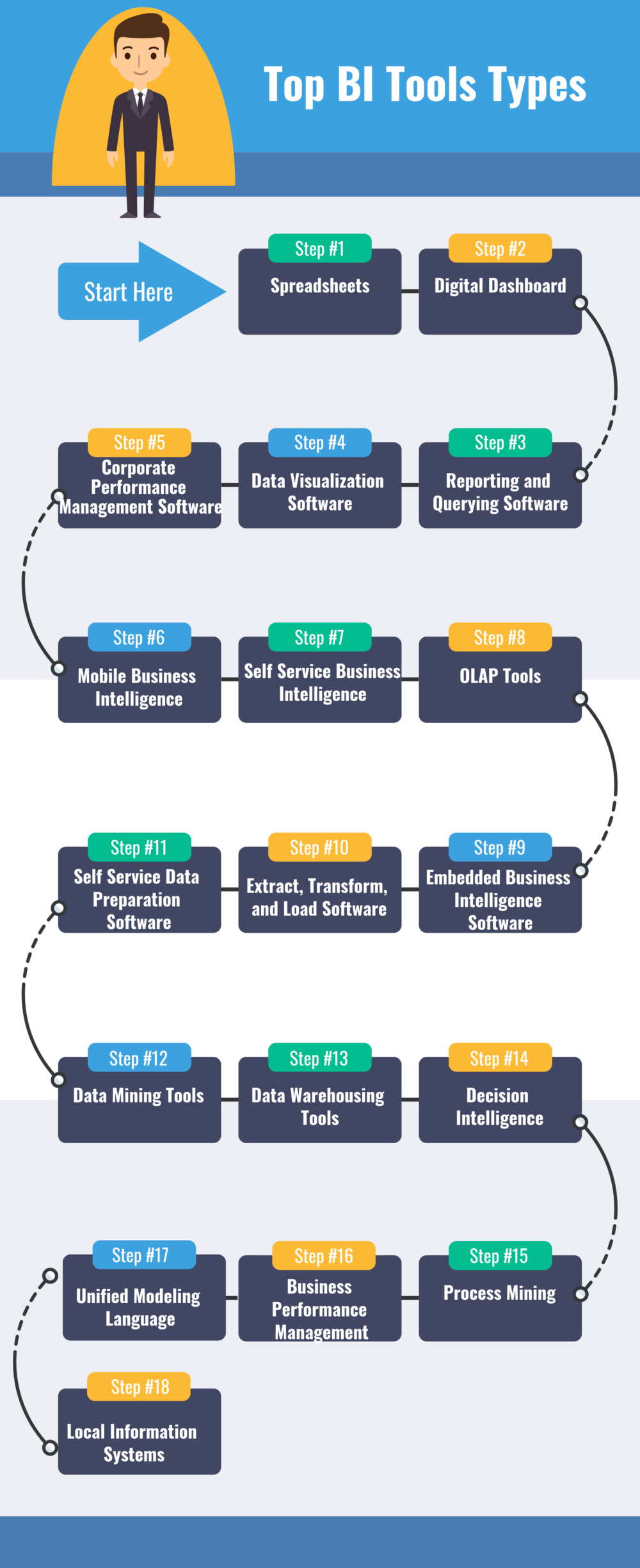What to Do After Getting in a Car Accident
Getting into a car accident can be a jarring and frightening experience. In the aftermath of the collision, it’s crucial to stay calm and take the right steps to ensure safety and protect your interests.
Stay Calm and Ensure Safety
In the chaotic moments after an accident, it’s easy to get overwhelmed. But it’s imperative to maintain composure and prioritize your well-being. First, check yourself for injuries. If you’re able, cautiously step out of the vehicle and check on other occupants. Call 911 immediately if anyone is seriously hurt.
Next, secure the scene by pulling over to the side of the road, if possible. Turn on your hazard lights to alert other drivers and prevent further collisions. If you can’t move your vehicle, stay inside and call for assistance.
Look around for any potential hazards, such as leaking fluids or fallen debris. If it’s safe to do so, place warning triangles or flares behind your vehicle to alert oncoming traffic. Remember, safety comes first. Don’t attempt to move injured parties unless absolutely necessary.
What to Do After a Car Accident: A Step-by-Step Guide
After a car accident, it’s easy to feel overwhelmed. Suddenly, there’s a lot to do and remember—and it can be tough to think straight. Follow these steps to ease the process and well protect yourself:
Exchange Information
It’s crucial to obtain the right details from all parties involved. First and foremost, make sure everyone is safe and not injured. Once the situation is stable, gather the following:
- Driver’s License Numbers: Note down the driver’s license numbers of all individuals involved.
- Insurance Information: Collect the insurance details of all vehicles involved. Jot down the company names, policy numbers, and expiration dates.
- Contact Information: Get the phone numbers, addresses, and email addresses of all drivers and passengers.
- Witness Information: If there are any witnesses to the accident, be sure to obtain their contact information as well.
Report the Accident
Promptly reporting the accident to your insurance company and the local authorities is important. The steps for reporting the accident may vary depending on your location, but it’s crucial to follow them diligently. If you’re compelled to report the accident to law enforcement, articulate the incident clearly and concisely.
What to Do After Getting in a Car Accident
If you’re unfortunate enough to find yourself in a car accident, it’s essential to know what to do to protect yourself and your rights. Here are some steps to follow:
Document the Scene
The first thing you should do is document the accident scene as thoroughly as possible. This will help you later on when you need to file an insurance claim or if you have to go to court.
Take photos of the damage to both vehicles, the positions of the vehicles, any injuries, and the surrounding area. If there are any witnesses, get their names and contact information. Also, be sure to get the names and contact information for the other driver and any passengers who were involved in the accident.
Make sure to note the following details as well:
- The date, time, and location of the accident
- The weather conditions
- The speed at which you were traveling
- The direction you were traveling
- The direction the other driver was traveling
- Any other relevant information
The more information you can gather at the scene of the accident, the better prepared you’ll be to file an insurance claim or take legal action if necessary.
What to Do After Getting in a Car Accident
In the aftermath of a car accident, it’s easy to feel shaken and disoriented. The adrenaline is pumping, and you may not be sure what to do next. Here’s a comprehensive guide to help you navigate the immediate aftermath of a car accident:
Seek Medical Attention
Even if you don’t feel injured, it’s imperative to seek medical care as soon as possible. Some injuries, like whiplash, can take days or even weeks to manifest. A doctor can assess your condition and rule out any potential underlying problems.
Secure the Scene
Once you’ve checked for injuries, make sure to secure the accident scene. Turn on your hazard lights, and if possible, pull over to the side of the road. Exchange information with the other driver(s) involved and get their insurance details. It’s also helpful to take photos of the scene, including any damage to the vehicles.
Contact the Police
In most cases, it’s recommended to call the police after a car accident. They will create an accident report, which can be helpful for insurance purposes and potential legal proceedings. The police can also help direct traffic and ensure the safety of everyone involved.
Hire an Attorney
If you’ve been injured in the accident or if there’s significant damage to your vehicle, it’s wise to consider hiring an attorney. An experienced attorney can represent your interests and help you recover compensation for your losses. They can also navigate the complex legal process and provide valuable guidance.
Protect Your Health
In the weeks following a car accident, it’s important to take steps to protect your health. This means following your doctor’s instructions, attending physical therapy appointments, and getting plenty of rest. It’s also important to stay hydrated and eat a healthy diet. Your body needs time to heal, so giving it the proper care is essential.
Getting into a car accident can be a frightening and stressful experience. In the aftermath of a collision, it’s easy to feel overwhelmed and unsure of what to do. Here’s a comprehensive guide to help you navigate the immediate aftermath of a car accident:
Contact Law Enforcement
Immediately after an accident, contact the police. Even if the damage seems minor, an official police report will provide an essential record of the incident. The police can also help direct traffic, prevent further accidents, and assist with exchanging information.
Check for Injuries
After contacting the police, check for injuries. Assess yourself and any passengers in your vehicle for signs of pain or discomfort. If you suspect any injuries, seek medical attention immediately. It’s crucial to get checked out even if you don’t feel any pain, as some injuries may not be immediately apparent.
Take Photos and Gather Information
Document the accident scene by taking photos of the damage, surrounding area, and any visible injuries. Exchange information with the other driver(s) involved, including names, contact details, insurance information, and witness statements if possible. Accuracy is critical, so take your time gathering this information.
Move to a Safe Location
If the accident poses an immediate hazard, such as blocking traffic or causing further collisions, move your vehicle to a safe location if possible. This ensures the safety of yourself and others.
Contact Your Insurance Company
As soon as possible, contact your insurance company to report the accident. They will provide guidance on the claims process, answer questions, and advise you on what steps to take next. It’s important to cooperate with your insurance company to ensure a fair and timely settlement.
Seek Legal Advice
Consider consulting with an attorney if the accident involves significant injuries, disputes over fault, or complex legal issues. An attorney can protect your rights, guide you through the legal process, and maximize your compensation. However, don’t feel pressured to hire an attorney immediately. Take some time to gather information and assess your options.
Don’t Admit Fault
While it’s important to be cooperative with the police and other parties involved, it’s crucial not to admit fault at the scene of the accident. Even if you believe you may be at fault, don’t make any statements that could jeopardize your insurance claim or legal rights. Let the police conduct their investigation and determine fault based on the available evidence.
Beware of Scams
Unfortunately, car accidents can attract scammers who may try to take advantage of your vulnerability. Be wary of unsolicited offers for medical treatment, legal services, or repairs. Consult with trusted professionals and your insurance company before making any decisions.
Stay Calm
In the midst of the chaos, it’s essential to try to remain calm. Don’t panic or get angry. Take deep breaths and focus on gathering the necessary information and ensuring the safety of yourself and others.
What to Do After Getting in a Car Accident
An auto accident can be a terrifying and stressful experience. In the aftermath, it’s crucial to know what steps to take to protect yourself and your interests. Here’s a comprehensive guide to help you navigate the aftermath of a car accident:
On the Scene
1. Stay calm and assess the situation. After an accident, it’s natural to feel shaken. However, it’s important to remain composed and assess the situation. Check for any injuries and move yourself to a safe location if needed.
2. Call the authorities. In most cases, you’re legally obligated to report an accident to the police. They will create a police report that can serve as valuable documentation for insurance purposes.
3. Exchange information. Get the names, addresses, phone numbers, and insurance information from all involved drivers. It’s also a good idea to take photos of the vehicles and any visible injuries.
4. Seek medical attention. Even if you don’t feel injured, it’s crucial to get checked out by a doctor. Some injuries, such as whiplash, may not manifest themselves immediately.
Contact Your Insurance Company
Inform your insurance provider promptly to initiate the claims process. Be thorough in describing the accident, including the date, time, location, and details of what happened.
Hire an Attorney
Consider hiring an attorney if you’ve sustained significant injuries or the other party is disputing fault. An attorney can help you protect your rights, maximize your compensation, and navigate the legal process.
Gather Documentation
Collect any relevant documentation, such as the police report, medical bills, and repair estimates. This information will help you build a solid case for your claim.
Prepare for the Insurance Claim
Be prepared to provide your insurance company with detailed information about the accident, your injuries, and your damages. The adjuster may ask for additional information, so be patient and cooperative.
5. Negotiate a fair settlement. The insurance company will make an initial settlement offer. It’s important to review the offer carefully and negotiate a fair settlement that covers your expenses and losses.
6. Be compensated for Damages
Insurance can cover the costs of property damage and repair. But it’s also important to consider seeking compensation for damages like pain and suffering, lost wages, and future medical expenses. Don’t just grab the quick payout. Make sure you’re getting what you deserve.
Consider hiring a lawyer if you’ve sustained significant injuries or the other party is disputing fault. Going it alone can be like trying to fix a broken bone without a doctor. You may end up making things worse. An attorney can protect your rights, maximize your compensation, and navigate the legal process.
What to Do After Getting in a Car Accident
The aftermath of a car accident can be a bewildering and overwhelming experience. Here’s a comprehensive guide to help you navigate the steps you should take to protect your rights and well-being:
Gather Information
If possible, pull over to a safe location and exchange the following details with the other driver(s):
- Name, address, and phone number
- Driver’s license number
- Insurance information
- Vehicle make, model, and license plate number
Report the Accident
- Call the Police: Reporting the accident is crucial for creating an official record. The police will investigate, take witness statements, and issue a police report.
- Notify Your Insurance Company: Contact your insurer as soon as possible to report the accident and initiate a claim. They can guide you through the process and help you secure compensation.
Document the Scene
- Take Photos: Capture images of the damage, the vehicles involved, and any visible injuries. This documentation can serve as valuable evidence.
- Get Witness Statements: If there were any witnesses to the accident, ask for their names and contact information. Their accounts can corroborate your version of events.
- Obtain Medical Attention: Even if you don’t feel injured, it’s essential to seek medical attention. Some injuries may not manifest immediately.
Seek Legal Advice
If you have sustained serious injuries or the other driver is disputing fault, consider consulting an attorney. A lawyer can advocate for your rights, negotiate with insurance companies, and pursue legal action if necessary.
Get a Copy of the Police Report
Why is this important?
The police report is an official record of the accident, and it can be incredibly valuable for your insurance claim. It will contain important information such as:
- The names and contact information of all drivers involved
- The date, time, and location of the accident
- A description of the accident
- The names and contact information of any witnesses
- Any citations that were issued
How to get a copy
You can usually obtain a copy of the police report from the police department that responded to the accident. There may be a small fee for the report, but it is typically worth the cost.
What to do with the report
Once you have a copy of the police report, keep it in a safe place. You may need to provide it to your insurance company, your attorney, or the court if you decide to file a lawsuit.
Contact Your Insurance Company
Why is this important?
You need to report the accident to your insurance company as soon as possible. Your insurance company will help you file a claim and get your car repaired or replaced.
What to do
To report the accident, you will need to provide your insurance company with the following information:
- Your name and contact information
- Your policy number
- The date, time, and location of the accident
- The names and contact information of the other drivers involved
- A description of the accident
- Any injuries or damage that occurred
Gather Evidence
Why is this important?
Gathering evidence will help you prove your case if you decide to file a lawsuit. Evidence can include:
- Photos of the accident scene
- Medical records
- Witness statements
- The police report
What to do
Here are some tips for gathering evidence:
- Take pictures of the accident scene, including the damage to your car and the other cars involved.
- Get the names and contact information of any witnesses.
- Keep a record of all medical expenses, including doctor’s bills, hospital bills, and prescription costs.
- Obtain a copy of the police report.
Protect Your Rights
Why is this important?
It is important to protect your rights after a car accident. You may be entitled to compensation for your injuries, lost wages, and pain and suffering.
What to do
Here are some tips for protecting your rights:
- Do not admit fault to the other driver or the police.
- Do not sign any documents without first talking to your lawyer.
- Keep a record of all communications with the insurance company.
- Do not accept a settlement offer from the insurance company without first talking to your lawyer.
- If you are injured, seek medical attention immediately.
- Keep a journal of your injuries and how they are affecting your life.
What to Do After Getting in a Car Accident
In the aftermath of a car accident, it’s crucial to stay calm and follow a few key steps to ensure your safety and protect your rights. Here’s a comprehensive guide to help you navigate this stressful situation:
1. Ensure Safety First
After an accident, pull over to the side of the road if possible. Turn on your hazard lights and check yourself and your passengers for injuries. If anyone is hurt, call 911 immediately. Don’t move injured individuals unless necessary.
2. Document the Scene
Use your smartphone to take photos of the accident scene, including the damage to your car and the other vehicle(s) involved. Note the date, time, and location of the accident. If there are witnesses, ask for their names and contact information.
3. Exchange Information
Share your driver’s license, insurance details, and contact information with the other drivers involved in the accident. It’s also important to obtain their information as well.
4. Notify the Police
In many cases, it’s essential to report the accident to the police, especially if there are injuries, significant property damage, or you suspect the other driver was intoxicated.
5. Seek Medical Attention
Even if you don’t feel any immediate pain, it’s advisable to seek medical attention after an accident. Some injuries, such as whiplash or concussions, may take time to manifest.
6. File an Insurance Claim
Contact your insurance company as soon as possible to report the accident and file a claim. Provide them with all the necessary information and documentation.
7. Consider Legal Advice (Optional)
If the accident is serious, involves disputes, or results in significant injuries, consider consulting with an attorney for guidance. They can help you understand your legal rights and ensure you receive fair compensation for your damages.
8. Protect Your Records
Keep a detailed record of all expenses related to the accident, such as medical bills, car repair costs, and lost wages. This will help you provide accurate information to your insurance company and support your claim. Additionally, maintain copies of all police reports, witness statements, and other relevant documents.
9. Don’t Admit Fault
It’s important to be polite and cooperative with the other drivers involved in the accident, but avoid admitting fault or responsibility. Let the insurance companies and the authorities determine who was at fault.
10. Beware of Scams
Unfortunately, there are individuals who take advantage of those involved in car accidents. Be wary of unsolicited offers of medical treatment or legal services. Trust only reputable professionals and consult with your insurance company before making any decisions.




Leave a Reply